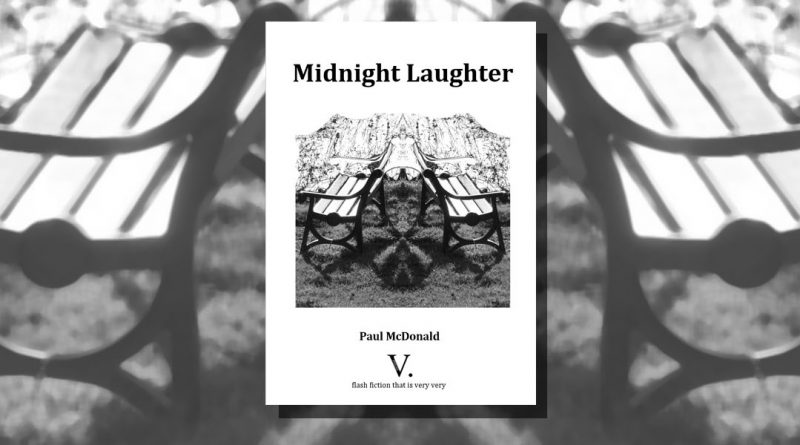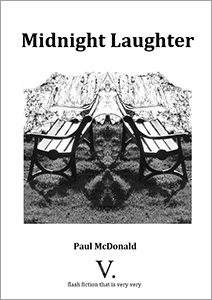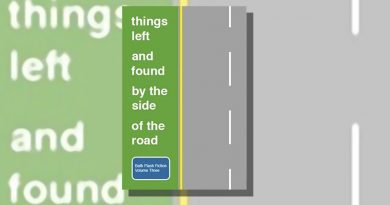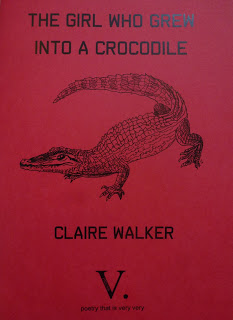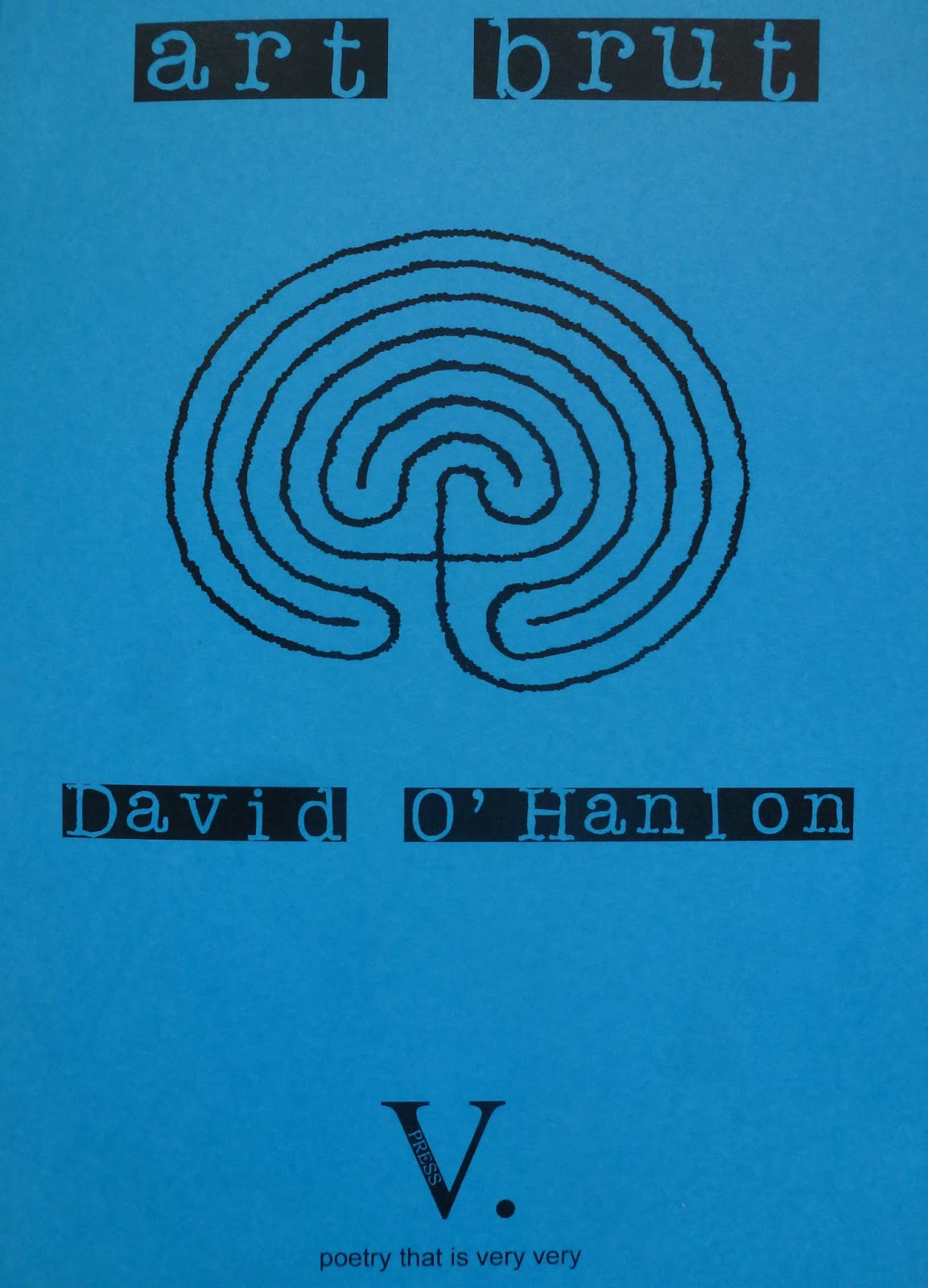Midnight Laughter by Paul McDonald
-Reviewed by Rhys Knapman-
Midnight Laughter is a collection of short stories by Paul McDonald, published by V. Press in 2019. Each is a combination of horror and humour, and each has a well-chosen title that adds significance to the story.
‘Here’s Another Good One’ describes two couples going through similar events, using the almost bland setting as a backdrop for a more ominous. The unnamed protagonist sees a woman on a date in a restaurant and observes that she ‘doesn’t have it right yet’. Initially, this appears to be in reference to the comical way the woman is handling a knife and fork. However, as the observation progresses we see that social interaction as a whole is what she is struggling with.
“She tips her head back and barks a sound that he gratefully accepts as mirth.”
The protagonist is then revealed to be in the same situation as the woman, though to what extent this is an imagined scenario is not explicitly described.
The emotionless, almost clinical, first person perspective creates a character that is difficult to empathise with, yet is incredibly entertaining to read. This is a choice that works incredibly well in the short time we spend with the character.
‘Short Story’ begins with the Roald Dahl-esque line:
“One morning at breakfast Pete was a foot shorter than he’d been the night before.”
Pete’s wife, never named in the narrative, seems to cope with the change remarkably well, barely reacting at all except to ask if she should buy him ‘platform shoes’. From here, he continues to shrink each morning. As with some of the best horror stories, the scenario itself is made more disturbing by remaining unexplained. However, the unsettling tone is somewhat diminished by the final few sentences — in which McDonald addresses the reader directly, confirming that this is in fact what a dot sounds like. ‘If you’ve ever wondered’
‘Shame’ once again takes place in a restaurant, an unnamed protagonist (potentially the same individual from ‘Here’s Another Good One’) ‘locks eyes’ with a rodent scuttling across the floor.
“The mouse sees I have seen him, and knows it is my duty to alert the waiter.”
Through unexplained means, the mouse becomes aware that the protagonist is not going to tell anyone and knows that it now needs to pay a debt. In a mean-spirited tangent, the protagonist describes his ‘theory about restaurants: there’s always someone there you’d like to see shamed’. In this instance, the protagonist had identified a ‘vocal, corpulent woman’ who is implied to be some distance away, who has done nothing to him.
Whether the wholly unsympathetic protagonist regrets what he has done, or whether something else is taking place, is left for the reader to decide.
‘Gifted’ is one of the more ‘grounded in reality’ in the collection. The story follows another unnamed first person protagonist as he sits on a bus beside a PhD student. This is not the first time the protagonist has seen the student, and the meeting is prompted by curiosity. He has witnessed the student leave boxes on buses, and seen a woman open it, look disappointed, and ‘toss it in the used ticket bin’. Apparently, the student has been doing this as a project for his art doctorate. The protagonist sees what is inside the box, a joke without a punchline.
“Art is ambiguity; there shouldn’t be a punchline to art.”
While the story works well as a ‘slice of life’ piece on its own, the context of the author’s status as the course leader for Creative and Professional Writing at the University of Wolverhampton (studying humour, among other things) adds another layer to the narrative. Overall, enjoyment of this piece is dependent on a willingness to put up with the elitist attitude taken by the characters regarding humour, the use of the internet, and art.
Midnight Laughter largely succeeds in blending the seemingly antithetical styles of horror and humour. While this is not a unique achievement, McDonald manages to tell original tales within the genre.

